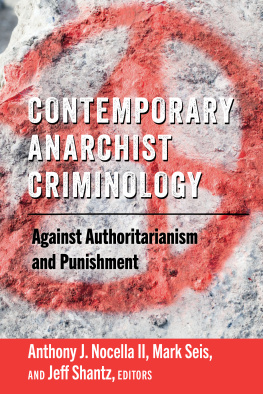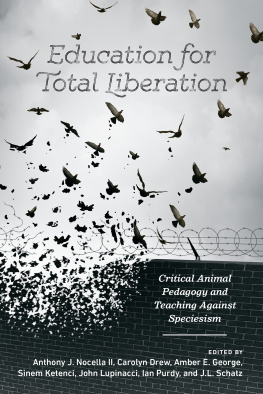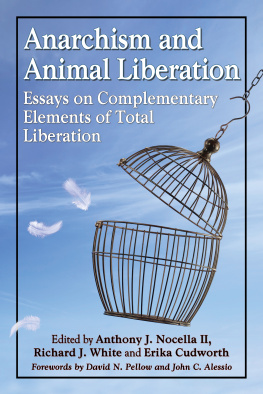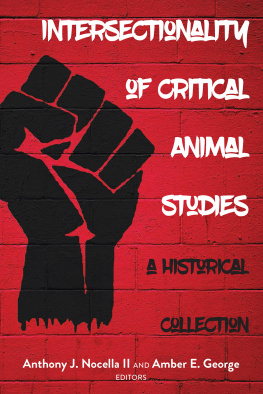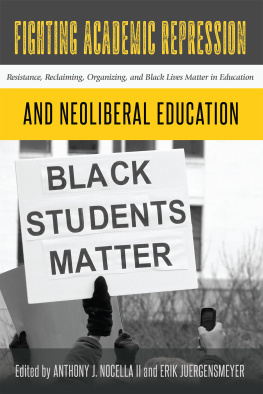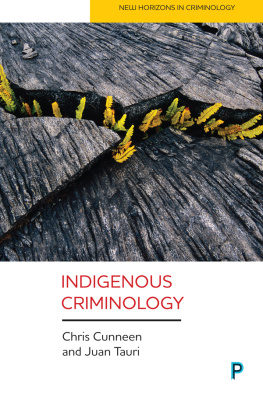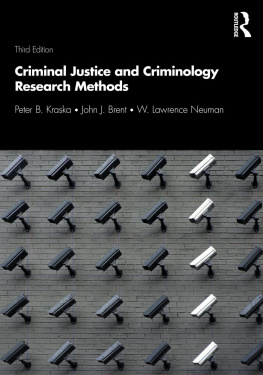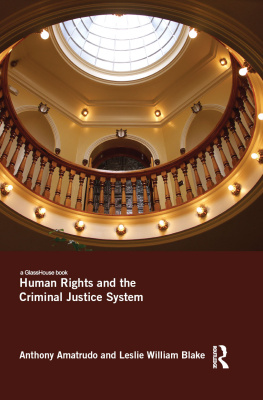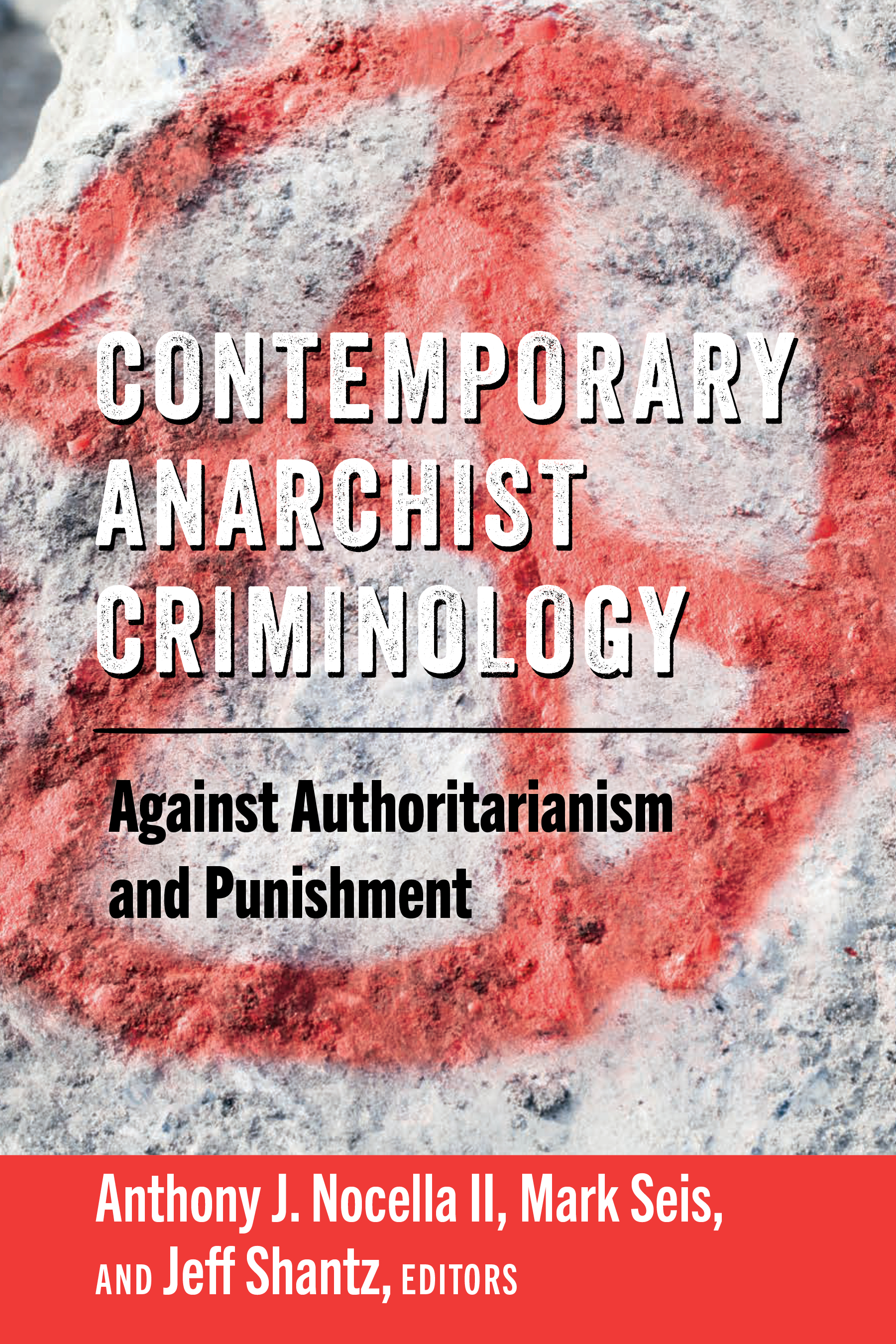Advance Praise for
Contemporary Anarchist Criminology
This book is a much-needed defense of the work we do nationally in ending the incarceration of all youth and promoting transformative justice.
Madelynne Kinoshita, Save the Kids
The editors and authors in Contemporary Anarchist Criminology are unwavering in their fearlessness to throw bold punches at authority and convention. Where many may not understand, their approaches and position deserve careful consideration in these most uncertain times.
David Stovall, Professor of African-American Studies and Educational Policy Studies, University of Illinois at Chicago
A must-read book for those who know the criminal justice system is broken, and want a solution. The editors and contributors present an anarchist theory of criminology, sure to challenge the failings of the criminal justice system for decades to come.
Amber E. George, Editor, Journal for Critical Animal Studies
Contemporary Anarchist Criminology is a brilliant, insightful, and uncom-promising collection, which both empowers and inspires the reader in equal measure. First, by provoking an urgently needed critical reading of the deep and inherent failings of orthodox judicial systems to come to the fore. Second, through advancing a range of persuasive arguments for anarchist criminologies to underpin new visions, and animate new ways-of-beings, in order to usher in new forms of social justice into the world. Crucially, these radical expressions of social justice, rooted as many are in intersectional resistance movements, and steeped in a politics of total liberation, are always in existence far removed from the twin tyrannies of capital and state. In short, this book makes a powerful and timely intervention into the existing literature, and deserves to be read widely.
Richard J. White, Reader in Human Geography, Sheffield Hallam University, United Kingdom
We live in increasingly illiberal times. According to the CIVICUS State of Civil Society Report for 2017, only 3% of the worlds people live in nation-states where civic space is fully open. There is a need to look for alternative intellectual and institutional models that will increase the space for broader public engagement, allowing for the attainment of greater social justice. Contemporary Anarchist Criminology contributes significantly to this search, introducing readers to a range of voices, ideas, and arguments, many of them with a long lineage, and yet seldom heard within the mainstream of conventional wisdom regarding our criminal justice system. The introductory chapter by the editors, plus the nine chapters by various contributors, including present-day prisoners, offer a compelling critique of current ideologies, policies, and practices, while furnishing humane and doable paths for action.
A. Peter Castro, Associate Professor of Anthropology and Robert D. McClure Professor of Teaching Excellence, Maxwell School for Citizenship and Public Affairs, Syracuse University
This valuable collection presents a strong critique of structures of oppression and injustice. It introduces important new perspectives that are vital for building a critical criminology and for creating much-needed radical transformation.
John Sorenson, Professor, Department of Sociology, Brock University
Finally, the first book on anarchist criminology!! What took so long. Now can we have prison abolition? A must read for anyone that cares about people.
Editorial Board, Poetry Behind the Walls
A straightforward short important text to begin the movement for anarchist criminology. This text does not strive to discuss every issue that could be possibly discussed, but rather says here is the first book on the topic; now everyone go out and write and organize.
Green Theory and Praxis Journal

The world is once again in turmoil. In the last decade, we witnessed a capitalist economic crisis that increased financial inequality and burden the working class disproportionally. We saw the carceral state continue to grow and administer disproportionate levels of punishment and repression toward communities of color. Yet, we also experienced large protest movements across the globe. For the first time in decades, riots returned in inner cities as a form of protest. And strong resistance movements arose in the United States and Europe, including Occupy and Black Lives Matter. More recently, and in response to these counter movements, we see a re-emergence of white supremacy and fascist ideologies embraced at multiple levels of our society. Add to all this we see a targeted and sustained effort to deport undocumented people. Given this, it is not hyperbolic to suggest that we are living in uncertain times. As a result, Contemporary Anarchist Criminology is all the more relevant, with the authors taking aim at the root causes of our crisis that is embedded in the law, power, and authority itself.
Unlike many of you reading this book, I became aware of anarchism relatively late, and did not fully comprehend the connection of anarchism to criminology until my doctoral work. In 2003, I found myself at Word Trade Organization (WTO) meetings in Cancun, Mexico, along with 10,000 other protesters from all over the globe. Present were campesinos, farmers, indigenous people from Latin America, and anarchists from Italy, Argentina, Mexico, France, and the United States. All were resisting a global neoliberal forces that, at the time, were trying to eliminate food security across the world in one swoop. Watching these groups assemble in parks, make collective decisions, engage in mutual aid, and launch an effective counter attack, all while speaking multiple languages, demonstrated the power of an anti-authoritarian model of organizing. ix | x
Since my experience in 2003, I embraced the anarchist tradition, mainly because of its uncompromising critique of the law, power, and the state. For example, I have organized closely with undocumented people (mostly women who do janitorial work in hotels) to fight the legal onslaught brought against them in Arizona. Immigration laws developed in the mid-2000s were designed to make the lives of undocumented people untenable, aiming to eliminate access to health care, education, work, and even the ability to rent a house. These efforts toward untenability are now common in various states, having re-emerged nation-wide with the recent calls to build a wall. For almost a decade, a group of us (documented and undocumented) met on a weekly basis to analyze and strategize on how to build a successful collective response. Reflecting a bit of what I saw in Cancun, Mexico, our meetings are bilingual, non-hierarchical, and resemble an assembly as much as possible. Partly based on anarchist critiques of power and authority, the group directly challenged the disproportional influences of local hotel owners on city and state regulations regarding wages and immigration status. The group understands that these hotel owners benefit economically from harsh immigration laws, since these laws suppress labor costs and attempts to scare undocumented people from complaining about their work environments. As such, individuals in the group often described being threatened with respect to challenging wage theft and feared managers threats to call immigration law enforcement on them and their families. Through discussion and their lived experiences, the workers we organized with often understood the discriminating bias of the law and the abusive application of power, all without academic lectures or explanations. After a decade, this group continues to fight for everyones right to live, love, and work wherever they please.

